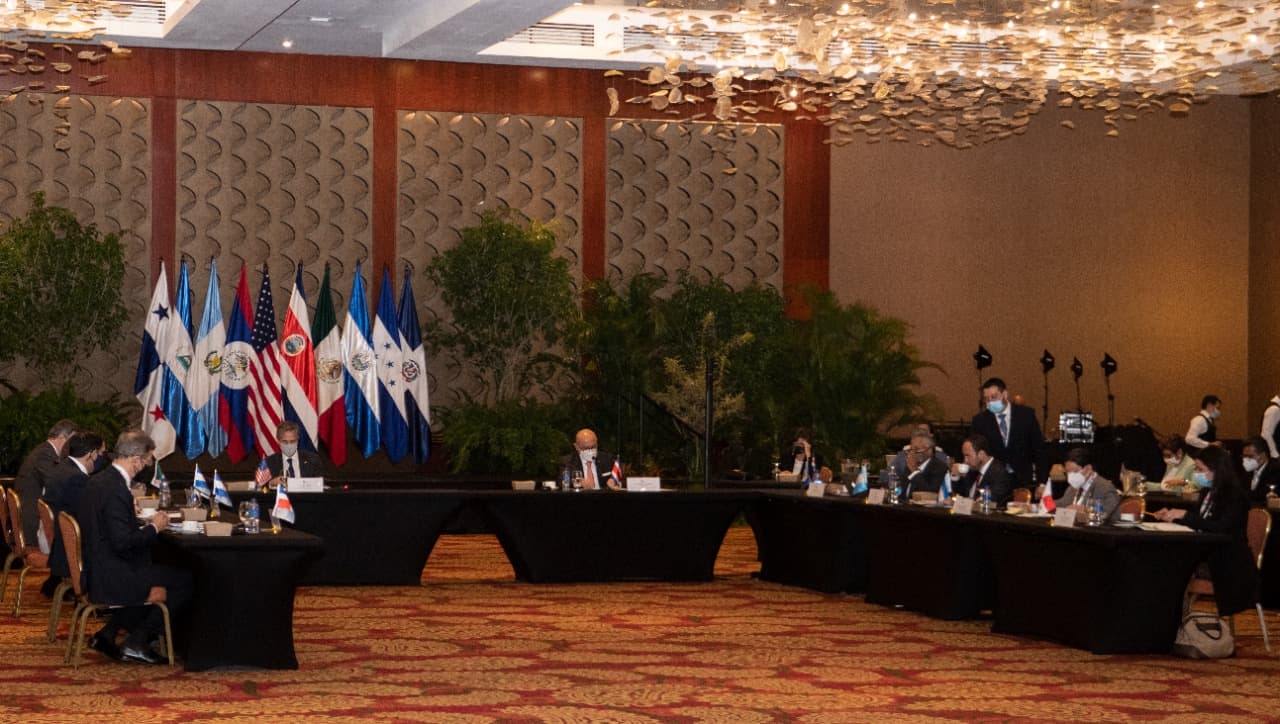The US Secretary of State, Antony Blinken, on Tuesday urged Central America to defend democracy and fight corruption to fight the “root causes” of the influx of migrants to the United States, at a time when tensions with certain countries complicate Washington’s task.
“Good governance is crucial for confronting the challenges and seizing the opportunities of this moment. And yet, we meet at a moment when democracy and human rights are being undermined in many parts of the region,” he said after meeting in Costa Rica with President Carlos Alvarado.
“We see this in the erosion of judicial independence, a crackdown on independent media and NGOs, the barring of political opponents, the quashing of anticorruption efforts,” added Joe Biden’s Secretary of State.
Blinken’s comments come at a time when Washington is intensifying its criticism against the president of El Salvador, Nayib Bukele, for undermining the independence of the Judiciary after the dismissal of a group of magistrates and of the attorney general.
The United States has also criticized President Daniel Ortega in Nicaragua, accused by human rights organizations of trying to to push his opponents out of the race to secure a fourth consecutive term.
Fair elections
“That elected officials are accountable to their people and respect their rights; that they ensure free and fair elections; that they not use their power to punish their critics; and that all of us continue to work to improve the lives of people in our countries in real, concrete ways,” urged Blinken.
He also asked Central America to commit to revamp their democratic systems.
“We understand how fragile democracy is. We’ve experienced setbacks in our own country in recent years. But that experience has underscored for us just how important it is to shore up the institutions and the norms that safeguard our democracy,” she added.
For his first visit to Latin America, Antony Blinken chose to go to San José, Costa Rica, where the foreign ministers of the member countries of the Central American Integration System (SICA) met: Costa Rica, Belize, Guatemala, Honduras, Nicaragua, Panama, Dominican Republic and El Salvador. They were also joined by Mexico.
During his visit, he praised the “example” of Costa Rica, which has just joined the Organization for Economic Cooperation and Development (OECD).
President Alvarado highlighted the relationship of “common values” with the United States such as “democracy, of human rights, and progress, and focused on people; values of believing in multilateralism and the way that countries in this globalized world can coexist peacefully and get ahead as a humanity.”
Commitment to migration
At the heart of this two-day trip is the complicated issue of migration, a headache for President Joe Biden.
“What we hope and expect to hear from our partners are commitments to address all of these issues together,” Blinken said. “The United States is willing to make the investments, the United States is determined to work in partnership, and our hope and expectation is that our – other countries will join us in these efforts. It affects all of us.”
Having reached the White House in January, Biden faced a large influx of migrants to the Mexican border from Central America. The Democratic president promised a more “humane” immigration policy, after the restrictions of the Donald Trump administration, though Republicans accuse him of denying the existence of an immigration “crisis.”
Biden has asked his vice president, Kamala Harris, who will make her first trip to Mexico and Guatemala next week, to address the matter.
And to materialize his desire to tackle irregular migration, Biden announced plans to allocate $4 billion over four years to help the development of Honduras, Guatemala and El Salvador, known as the Northern Triangle of Central America.
In a region hard hit by the coronavirus pandemic and in need of vaccines, Blinken said that “in the next two weeks” the United States will announce how it will distribute 80 million surplus vaccines worldwide.






